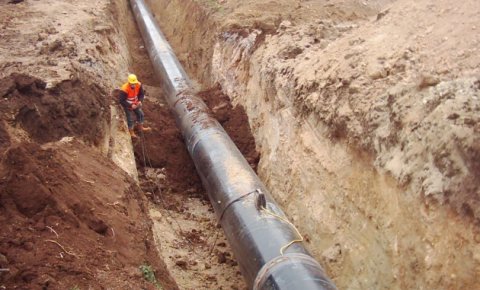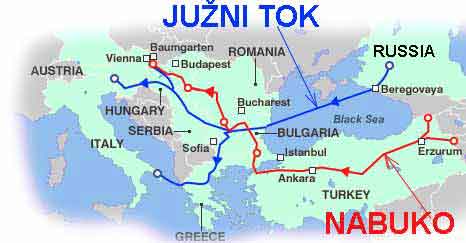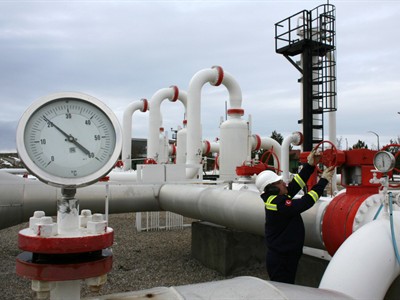| NSPM in English | |||
The Nabucco West Project Comes to an End |
 |
 |
 |
| субота, 13. јул 2013. | |
|
Summary
Analysis The Nabucco West pipeline, which was backed by the European Union, is a smaller version of the Nabucco project, a massive pipeline that would have linked Turkey's Eastern Anatolia region to Austria. Nabucco West would have delivered non-Russian Caspian natural gas to Central and Southern European countries that have been looking for a way to circumvent Russia, which they believe was bullying them with its energy resources. The pipeline would have started at the Bulgaria-Turkey border and passed through Romania and Hungary before culminating in Austria.
For its part, Russia already is planning to build a pipeline through the route known as the Southern Corridor to service Central and Southern European markets. Known as the South Stream natural gas pipeline, the project will run from Russia through the Black Sea into Bulgaria, and from there it will traverse Serbia, Hungary, Slovenia and Italy. Bulgaria and Hungary If Nabucco West is shelved -- as we expect it to be -- its would-be transit countries will be affected in radically different ways. For Bulgaria and Hungary, the two countries involved in both projects, an end to Nabucco West likely means an end to the balancing act they had been performing with Moscow and Brussels. For the past two years, Hungary and Bulgaria have benefitted from competition between the two pipeline consortia. Moscow gave Sofia and Budapest several incentives, including contract discounts, for their support of the South Stream pipeline at the expense of Nabucco West. The incentives notwithstanding, these two countries now find themselves nearly wholly dependent on Russian natural gas imports for the foreseeable future.
The end of Nabucco West validates a key geopolitical trend Stratfor identified long ago: As the European Union weakens, Russia is encroaching on Central Europe through commercial means. Romania Romania is perhaps even more concerned about its future after Nabucco West. Originally excluded from the South Stream project in favor of Bulgaria, Romania now finds itself without an EU-backed intercontinental pipeline project. Nabucco West could have helped Romania economically through infrastructure investment and transit tariffs. More important, it could have strengthened the fraying ties between Bucharest and the core of the European Union. Interestingly, the end of Nabucco West could prompt Bucharest to expedite the development of its own energy resources. Romania has some of the largest hydrocarbon reserves in Europe. The country traditionally has been an oil and natural gas producer, but depleting fields have forced Bucharest to curb production. Romania still has vast untapped unconventional gas plays (shale in particular) and significant offshore deposits that have only recently been exploited. The loss of Nabucco West could be the impetus Romania needs to develop its energy reserves -- a process that has suffered from the country's political upheavals.
Of course, Romania lacks the money and the technology to pursue offshore and unconventional deposits by itself. Bucharest will have to try harder to attract foreign partners. We expect the government to allow greater participation of foreign firms -- probably through joint ventures -- while asserting more control over the energy resources themselves. Western and Russian firms already have shown interest in developing one of the more attractive "new" energy markets. Western firms hope to turn a profit from Romania; Russian firms want to mitigate the threat Romania poses as a potential rival to its energy dominance in the region. Romania is only one component of a much larger competition between the West and Russia for primacy in Central Europe. The decision to proceed with the Trans-Adriatic Pipeline does not determine the outcome for Bulgaria and Hungary -- they can still balance between the West and Russia somewhat -- but it does ensure a long complex competition over these countries. |
Од истог аутора
- Remaking the Eurozone in a German Image
- Serbia: A Weimar Republic?
- NATO's Lack of a Strategic Concept
- Surveying Turkish Influence in the Western Balkans
- The Geopolitics of Turkey: Searching for More
- Kosovo – Consequences of the ICJ Opinion
- Kyrgyzstan and the Russian Resurgence
- Russia, Belarus, Kazakhstan: A Customs Deal and a Way Forward for Moscow
- Montenegro's Membership in NATO and Serbia's Position
- ЕУ: Убрзано ширење на Балкан
- The Return of Germany
Остали чланци у рубрици
- Playing With Fire in Ukraine
- Kosovo as a res extra commercium and the alchemy of colonization
- The Balkans XX years after NATO aggression: the case of the Republic of Srpska – past, present and future
- Из архиве - Remarks Before the Foreign Affairs Committee of the European Parliament
- Dysfunction in the Balkans - Can the Post-Yugoslav Settlement Survive?
- Serbia’s latest would-be savior is a modernizer, a strongman - or both
- Why the Ukraine Crisis Is the West’s Fault
- The Ghosts of World War I Circle over Ukraine
- Nato's action plan in Ukraine is right out of Dr Strangelove
- Why Yanukovych Said No to Europe

.jpg)

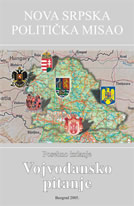






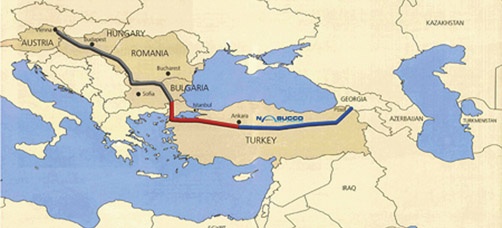 Azerbaijan's decision to transport its natural gas via the Trans-Adriatic Pipeline instead of the proposed Nabucco West pipeline will create new challenges for countries through which Nabucco West would have passed. The energy consortium that is developing Azerbaijan's Shah Deniz II field, which will supply natural gas to Europe, officially announced the decision June 28. On the day of the announcement, Stratfor wrote that
Azerbaijan's decision to transport its natural gas via the Trans-Adriatic Pipeline instead of the proposed Nabucco West pipeline will create new challenges for countries through which Nabucco West would have passed. The energy consortium that is developing Azerbaijan's Shah Deniz II field, which will supply natural gas to Europe, officially announced the decision June 28. On the day of the announcement, Stratfor wrote that 